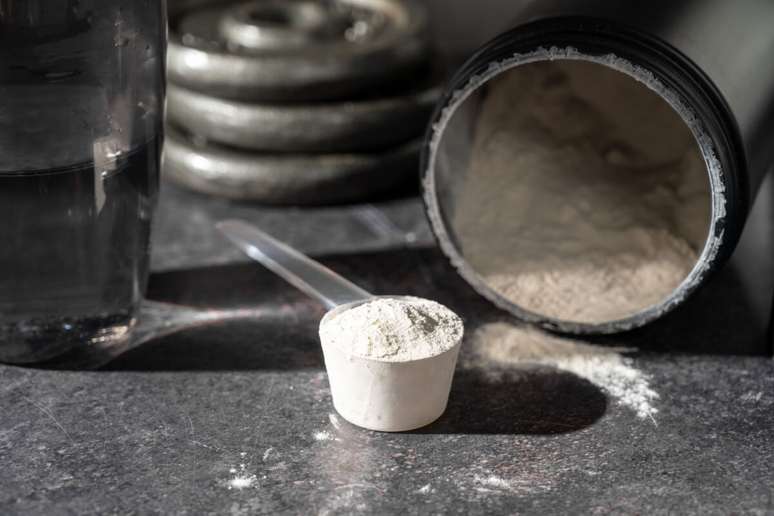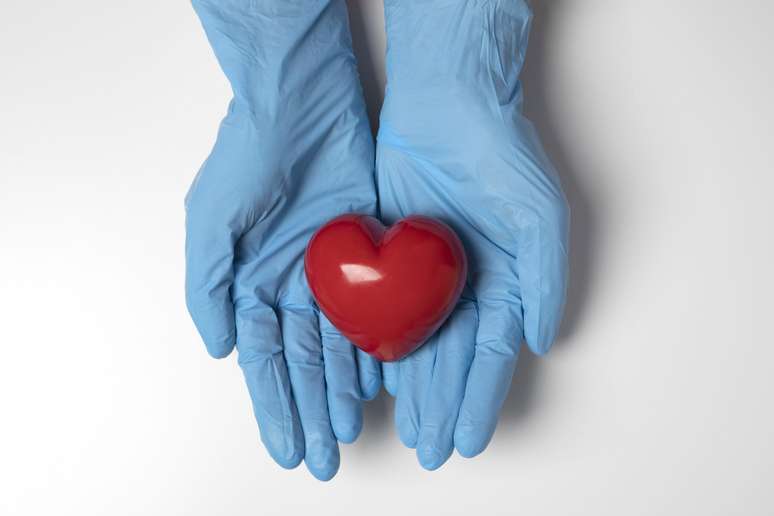The integration made correctly brings benefits to physical and mental well -being
Much news has been transmitted on supplementation, with emphasis on the use of creatine for muscle mass gain. The popularity of the product grows and, consequently, also sales. Its use is expanded, going beyond the year of exercise and athletes for health applications and benefits of muscle performance. However, there are suspicions about the reliability of the product due to adulterated products and incorrect use.
Creatine is a vital compound that helps manage the energy available for our cells and tissues. Therefore, it is one of the most studied and recommended supplements. New discoveries continue to strengthen their use for coherent and measurable results in physical form and general health.
Scientific studies on creatine
The credibility of creatine is widely supported by the scientific community. In one of the most complete reviews on the subject, the International Society of Sports Nutrition (ISSN) published an official position in 2017. creatine The monohydrate is the most effective ergogenic supplement available for athletes, able to increase high intensity operating capacity and lean mass during training. The analysis concludes that the use in short and long term (up to 30 g/day for 5 years) does not cause harmful effects on healthy individuals.
Another extraordinary study, a destination -analysis published in 2022 in Journal of International Society of Sports NutritionHe analyzed the data of various research and confirmed that the integration of creatine, combined with resistance training, significantly improves strength and muscle performance in high intensity exercises, strengthening product safety in healthy and elderly individuals without compromising renal function.
Health benefits
A curiosity for the onset of the research: although the creatine was discovered in 1832, the research that spread its use as a supplement was led in the 90s by Professor Roger Harris and his colleagues from the University of Aberrystwyth in Wales. From there many studies have been conducted, including cognitive functions.
“Creatine is crucial for brain health because it Helps Maintain Available Energy to Nerve Cells, Optimizing Its Functioning and offering Neuronal Protection. In addition to Cognitive Function, Other Benefits such as Into This Context, Such As the Antoxidant Protective Effect, The Prevention of Chronic Diseases (Such As Sarcopenia), Stress Aid (Espencially in Cases of Sleep Deprivation) and Various Benefits for Women, “Heys,” Beatriz Duarte, Nutritionist at Trustfuel, with brand specialized in additional Premium feed.
Myths and truth about the use of creatine
With the dissemination of creatine, myths also arise. Subsequently, Beatriz Duarte clarifies the main statements on the supplement. Check!
1. Creatine in Gommia is not reliable by the presence of artificial sweeteners and dyes
Myth. The effectiveness of creatine is in its purity and dosage, not in the format. Quality gummies use pure monohydrate creatine, with absorption equivalent to powder or capsule versions. You ingredients They are approved by the National Health Surveillance Agency (Anvisa) and suffer rigorous quality control.
2. Creatine in Gommia is less effective
Myth. The form of delivery does not compromise the effectiveness, provided that creatine is pure and in adequate dosage, with everyday and constant use. Gummies offer practicality and better adherence to continuous use without compromising the results.
3. Creatine causes kidney problems
Myth. Scientific studies show that creatine is safe for healthy people if used correctly. The industry follows rigorous standards and good production practices to ensure consumer safety.
4. Sweeteners and dyes always compromise the supplement
Myth. Ingredients such as sucrose and permitted dyes are safe and regulated. Attention to the choice of products from companies that use only approved components and that focus on product safety.

5. Creatine is only for athletes
Myth. Creatine has clinical applications and benefits to various audiences, such as elderly, women, rehabilitation patients and even cognitive health.
6. Creatine is sure for healthy people
REAL. If used correctly and in adequate dosages, creatine does not cause damage to the kidneys to healthy people. This is one of the most important truths to combat the myth of toxicity. The industry follows anvisa standards and good production practices to guarantee this.
7. It has a vital role in the production of cellular energy
REAL. Creatine participates in the phosphocrea system, which provides rapid energy for muscle and brain cells. This makes it essential not only for athletesBut for anyone looking for more disposal and cell health.
8. It contributes to brain health and cognitive functions
REAL. Studies show that creatine can improve memory, attention and even help in light depression. Take part in the formation of new neurons and the protection against oxidative stress.
9. It can benefit from various audiences
REAL. In addition to athletes, creatine is indicated for:
- Elderly: Help muscle mass and in cognitive health;
- Women: It can help in phases such as menopause, PMS (premenstrual tension) and postpartum recovery;
- Rehabilitation patients: contributes to muscle and functional recovery;
- Vegetarians and vegans: which have a less natural ingestion than creatine through food.
By Yolanda Drumon
Source: Terra
Ben Stock is a lifestyle journalist and author at Gossipify. He writes about topics such as health, wellness, travel, food and home decor. He provides practical advice and inspiration to improve well-being, keeps readers up to date with latest lifestyle news and trends, known for his engaging writing style, in-depth analysis and unique perspectives.








